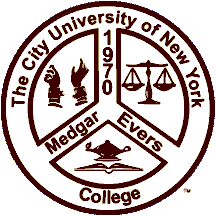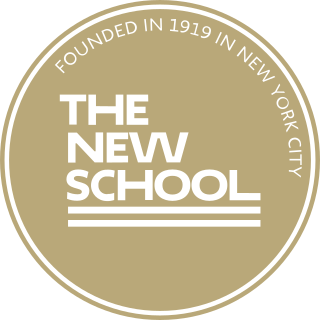
A community college is a type of undergraduate higher education institution, generally leading to an associate degree, certificate, or diploma. The term can have different meanings in different countries: many community colleges have an open enrollment policy for students who have graduated from high school, also known as senior secondary school or upper secondary school. The term usually refers to a higher educational institution that provides workforce education and college transfer academic programs. Some institutions maintain athletic teams and dormitories similar to their university counterparts.

A liberal arts college or liberal arts institution of higher education is a college with an emphasis on undergraduate study in liberal arts and general sciences. Such colleges aim to impart a broad general knowledge and develop general intellectual capacities, in contrast to a professional or vocational curriculum. Students in a liberal arts college generally major in a particular discipline while receiving exposure to a wide range of academic subjects, including general sciences as well as the traditional humanities subjects taught as liberal arts. Although it draws on European antecedents, the liberal arts college is strongly associated with American higher education, and most liberal arts colleges around the world draw explicitly on the American model.

Liberal arts education is the traditional academic course in Western higher education. Liberal arts takes the term art in the sense of a learned skill rather than specifically the fine arts. Liberal arts education can refer to studies in a liberal arts degree course or to a university education more generally. Such a course of study contrasts with those that are principally vocational, professional, or technical, as well as religiously based courses.
The Juilliard School is a private performing arts conservatory in New York City. Founded by Frank Damrosch as the Institute of Musical Art in 1905, the school later added dance and drama programs and became the Juilliard School, named after its principal benefactor Augustus D. Juilliard.
A bachelor's degree or baccalaureate is an undergraduate degree awarded by colleges and universities upon completion of a course of study lasting three to six years. The two most common bachelor's degrees are the Bachelor of Arts (BA) and the Bachelor of Science. In some institutions and educational systems, certain bachelor's degrees can only be taken as graduate or postgraduate educations after a first degree has been completed, although more commonly the successful completion of a bachelor's degree is a prerequisite for further courses such as a master's or a doctorate.
Parsons School of Design, known colloquially as Parsons, is a private art and design college located in the Greenwich Village neighborhood of New York City. Founded in 1896 after a group of progressive artists broke away from established Manhattan art academies in protest of limited creative autonomy, Parsons is one of the oldest schools of art and design in New York.

The Berklee College of Music is a private music college in Boston, Massachusetts. It is the largest independent college of contemporary music in the world. Known for the study of jazz and modern American music, it also offers college-level courses in a wide range of contemporary and historic styles, including rock, hip hop, reggae, salsa, heavy metal and bluegrass.

Rockland Community College (RCC) is a public community college in the town of Ramapo, New York in Rockland County. It is part of the State University of New York. The college, established in 1959, became the 18th community college to join the SUNY system. The college offers 51 programs and offers associate degrees and certificates. Additionally, students can earn other degrees, including Bachelor of Arts, Bachelor of Science, and Master of Arts in the arts and sciences, Doctoral Program in Executive Leadership (EdD), technology, and health professions while attending classes at Rockland through articulation programs with four-year schools. The current enrollment is 6,859 students.

Medgar Evers College is a public college in New York City. It is a senior college of the City University of New York (CUNY), offering baccalaureate and associate degrees. It was established in 1970 in central Brooklyn. It is named after Medgar Wiley Evers, an African American civil rights leader assassinated on June 12, 1963.

An art school is an educational institution with a primary focus on the visual arts, including fine art – especially illustration, painting, photography, sculpture, and graphic design. Art schools can offer elementary, secondary, post-secondary, undergraduate or graduate programs, and can also offer a broad-based range of programs. There have been six major periods of art school curricula, and each one has had its own hand in developing modern institutions worldwide throughout all levels of education. Art schools also teach a variety of non-academic skills to many students.

The New School is a private research university in New York City. It was founded in 1919 as The New School for Social Research with an original mission dedicated to academic freedom and intellectual inquiry and a home for progressive thinkers. Since then, the school has grown to house five divisions within the university. These include the Parsons School of Design, the Eugene Lang College of Liberal Arts, the College of Performing Arts, which includes the Mannes School of Music, The New School for Social Research, and the Schools of Public Engagement.
The New School for Social Research (NSSR), previously known as The University in Exile and The New School University, is a graduate-level educational institution that is one of the divisions of The New School in New York City, United States. The university was founded in 1919 as a home for progressive era thinkers. NSSR explores and promotes what they describe as global peace and global justice. It enrolls more than 1,000 students from all regions of the United States and from more than 70 countries.
The University of Michigan School of Information is the informatics and information science school of the University of Michigan, a public research university in Ann Arbor, Michigan. It offers baccalaureate, magisterial, and doctoral degrees.

Milano School of Policy, Management, and Environment is a graduate school at The New School within The Schools of Public Engagement that offers degrees in environmental policy and sustainability studies, nonprofit management, organizational change management, public policy and urban policy, as well as a PhD. program in public and urban policy and three graduate certificates.

The Association of Independent Colleges of Art and Design (AICAD) is a non-profit consortium of 36 art and design schools in the United States and Canada. All AICAD member institutions have a curriculum with full liberal arts and sciences requirements complementing studio work, and all are accredited to grant Bachelor of Fine Arts and/or Master of Fine Arts degrees. To qualify for AICAD membership an art school must be: a free-standing college specializing in art or design; a non-profit institution; grant BFA and/or MFA degrees; and have accreditation from both the National Association of Schools of Art and Design (NASAD) and the relevant academic accrediting organization in their region.
Hatyai University is a private university in Hat Yai, Songkhla Province, Thailand. Founded in 1997, the university offers undergraduate programs through its seven faculties: business administration, law, education and liberal arts, science and technology, political science, communication arts, and Didyasarin International College. Its graduate school offers in education administration, business administration programs, and doctoral programs.

The Frank Batten School of Leadership and Public Policy is the public policy school of the University of Virginia.

The University of Pittsburgh School of Social Work, one of the 13 schools and colleges within the University of Pittsburgh, is located in the Oakland section of Pittsburgh, Pennsylvania. Its offices are in the world-famous Cathedral of Learning, a forty-story, Gothic style edifice that is the signature building of the university.

Cairn University is a private Christian university in Langhorne Manor and Middletown Township, Pennsylvania. Founded in 1913, the university has six schools and departments: Business, Counseling, Divinity, Education, Liberal Arts & Sciences, and Music. All students take a minimum of 30 semester hours of Bible classes.
The College of Performing Arts, is part of The New School, New York City, NY. It was established in the fall of 2015 as part of major rebranding of the three performance arts colleges of The New School. The measure combined the Mannes School of Music, the School of Jazz and Contemporary Music, and School of Drama into a new institution called the College of Performing Arts. The college is mostly located within The New School's Arnhold Hall at 55 West 13th street, with the School of Drama located at 151 Bank street.













